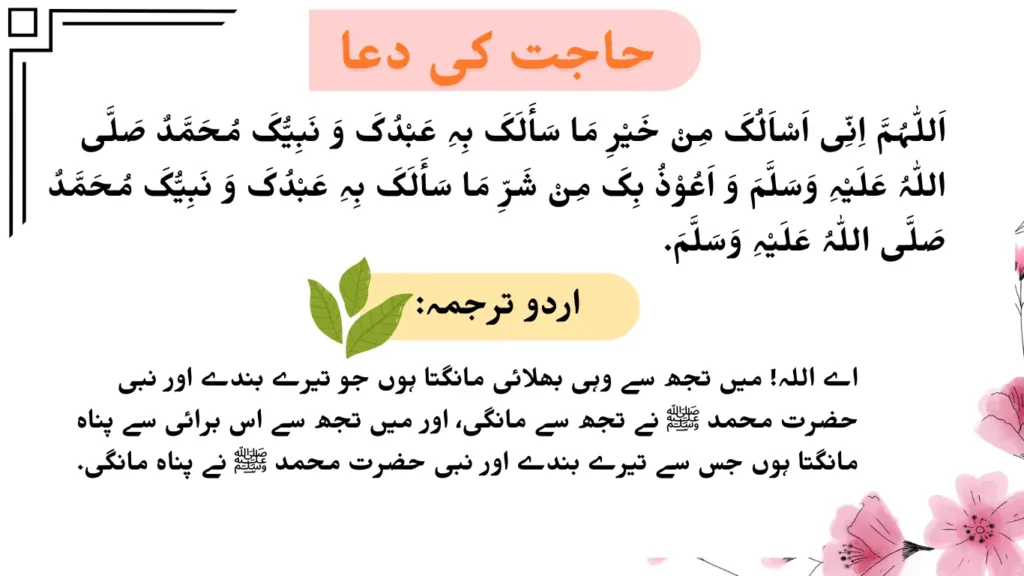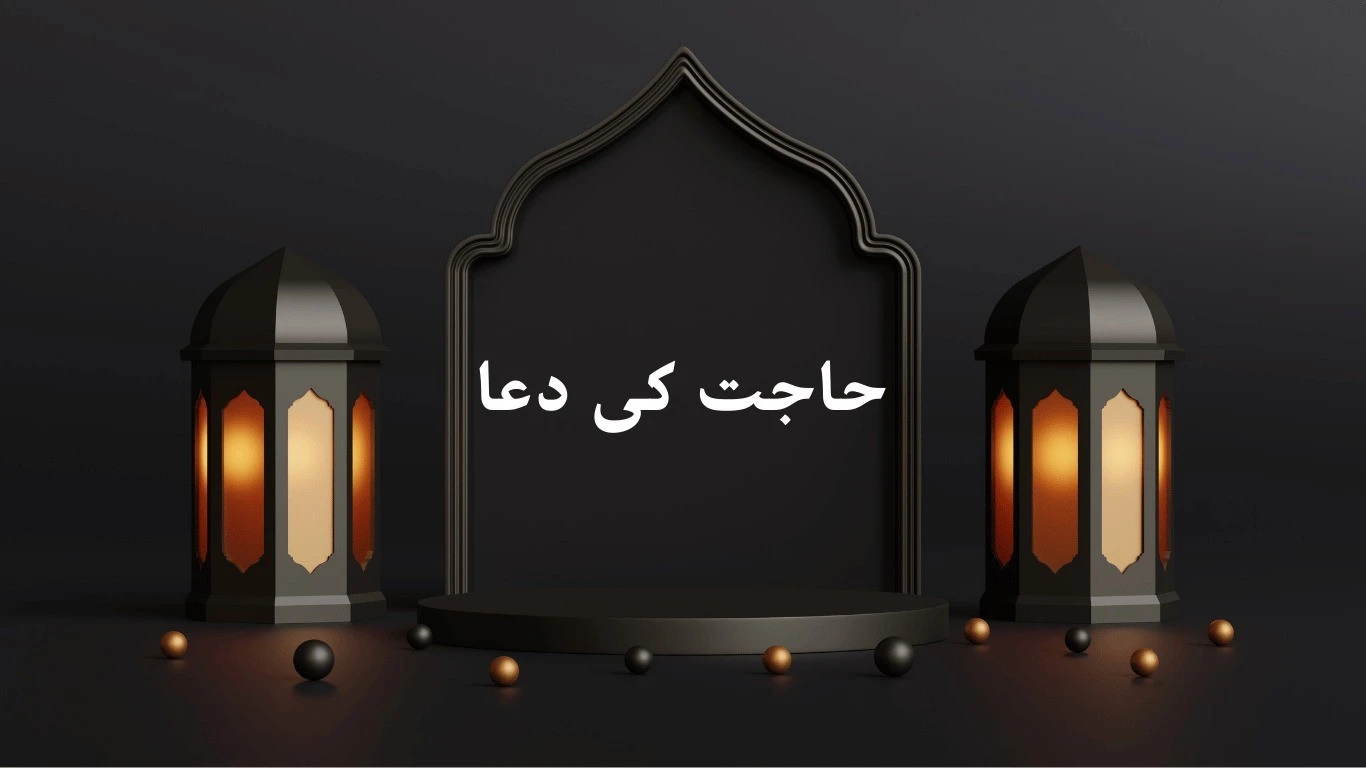In Islam, hajat ki dua refers to a special prayer recited to ask Allah for assistance in fulfilling one’s needs and desires. Whether it is for financial relief, health, personal struggles, or emotional well-being, Muslims believe that through prayer (dua), they can seek Allah’s help in overcoming difficulties. This article provides an in-depth understanding of hajat ki dua, its importance, the proper method of performing it, and the benefits associated with it.
What is Hajat Ki Dua?
The word Hajat means “need” or “desire,” and dua for needs is a supplication made to ask Allah for assistance in fulfilling those needs. It is a heartfelt prayer recited by Muslims when they are in urgent need of divine help or intervention. This dua is rooted in faith, as believers turn to Allah with full trust that He will answer their prayers according to what is best for them.
Importance of Dua for Needs
In Islam, making dua is an essential act of worship that signifies a believer’s complete dependence on Allah. dua for needs is particularly significant as it focuses on addressing specific needs, both worldly and spiritual. The dua serves as a reminder that Allah is the ultimate provider and helper, and that one should seek His assistance in all matters.
Some key aspects of dua for needs include:
- Strengthening the connection with Allah: It strengthens a Muslim’s bond with their Creator by expressing their needs to Him.
- Demonstrating humility: By making dua, a believer shows humility and reliance on Allah’s mercy.
- Emotional and spiritual relief: It brings comfort and peace during times of difficulty.
| Shab e Qadr ki Dua: A Night of Forgiveness |
| Nazar Ki Dua for Protection from Evil Eye |
| A Guide to Roza Kholne Ki Dua |
| Rabbi Inni Lima Anzalta |
How to Perform Dua for Needs
To perform dua for needs, follow these steps:
Perform Wudu (Ablution): Ensure you are in a state of physical purity by performing wudu before you begin the dua.
Offer Two Rakats of Nafl Prayer: Start by offering two rakats (units) of nafl (voluntary) prayer. Focus on your need during the prayer and prepare yourself mentally and spiritually.
Recite the dua for needs:Arabic:
اَللّٰہُمَّ اِنِّی اَسْاَلُکَ مِنْ خَیْرِ مَا سَأَلَکَ بِہِ عَبْدُکَ وَ نَبِیُّکَ مُحَمَّدٌ صَلَّی اللّٰہُ عَلَیْہِ وَسَلَّمَ وَ اَعُوْذُ بِکَ مِنْ شَرِّ مَا
سَأَلَکَ بِہِ عَبْدُکَ وَ نَبِیُّکَ مُحَمَّدٌ صَلَّی اللّٰہُ عَلَیْہِ وَسَلَّمَ
English Translation:
“O Allah, grant me the best of what Your servant and Prophet Muhammad (peace be upon him) sought. Protect me from the evils they sought refuge from”
Make Personal Supplications: After reciting the hajat ki dua, you may make personal supplications to Allah, asking Him for help with your specific needs or desires.
Trust in Allah’s Wisdom: Conclude your dua with complete trust in Allah, believing that He will answer your prayer in the best way and at the best time.

Benefits of Dua for needs
Reciting dua for needs brings numerous benefits, both spiritual and emotional, including:
- Strengthened faith: Turning to Allah in moments of need strengthens your faith and brings you closer to Him.
- Emotional relief: The act of making dua allows you to unburden yourself emotionally and find solace in knowing that Allah is listening.
- Increased patience: The process of making hajat ki dua helps build patience, as it reminds you to rely on Allah’s wisdom and timing.
- Hope and optimism: By placing your trust in Allah, you gain hope and positivity, knowing that He is the best of planners.
Best Times to Recite Dua for needs
While you can make hajat ki dua at any time, there are certain times considered more blessed for making supplications:
- During the last 3rd of the night (Tahajjud)
- On Fridays (Jumma)
- After Fajr and Asr prayers
- During Ramadan
- On the Day of Arafah
These moments are considered special because they are times when Allah’s mercy is abundant, making prayers more likely to be accepted.
Conclusion
Hajat ki dua is a powerful tool for seeking help from Allah during times of need. It allows believers to express their concerns and desires while strengthening their faith in Allah’s wisdom and mercy. By performing the dua with sincerity and faith, Muslims can find comfort, patience, and hope, knowing that Allah will answer their prayers in the best possible manner. Always remember that Allah’s timing is perfect, and every prayer is heard.
FAQs:
Yes, you can make dua for needs for personal, worldly, or spiritual desires as long as your request is halal (permissible) in Islam. You may ask Allah for anything, whether it’s related to health, wealth, or any other need.
There is no specific limit to how many times you can perform dua for needs. You can recite it as often as needed, especially in times of hardship or when facing a significant decision or challenge.
The acceptance of dua for needs depends on Allah’s wisdom and timing. Sometimes, a dua is answered immediately, while other times, the answer may come later or in a different form. Patience and trust in Allah’s plan are essential when making dua.




